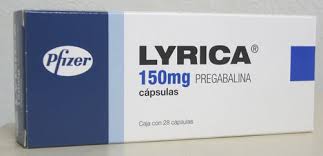
Contents
Introduction
Nerve pain, or neuropathic pain, arises from damage or dysfunction within the nervous system and can significantly impact quality of life. Conditions like diabetic peripheral neuropathy, postherpetic neuralgia, and fibromyalgia are common sources of neuropathic pain. Pregabalin, marketed as Lyrica, is a widely used medication for treating this type of pain. This guide provides a detailed overview of Lyrica 150 mg and Lyrica 75 mg, covering their pharmacology, therapeutic uses, dosing guidelines, administration, efficacy, safety considerations, patient education, and complementary therapies.
Pharmacology of Lyrica (Pregabalin)
Lyrica 150 mg Capsule (pregabalin) is an anticonvulsant and neuropathic pain agent that works by binding to the alpha2-delta subunit of voltage-gated calcium channels in the central nervous system. This binding reduces the release of neurotransmitters like glutamate, norepinephrine, and substance P, which are involved in pain transmission. By modulating neuronal excitability and inhibiting these neurotransmitters, Lyrica helps to alleviate neuropathic pain and improve pain thresholds.
Therapeutic Uses of Lyrica
Lyrica is approved for the treatment of several conditions characterized by neuropathic pain:
- Diabetic Peripheral Neuropathy (DPN)
- Neuropathic pain associated with diabetes-related nerve damage.
- Postherpetic Neuralgia (PHN)
- Persistent nerve pain following an outbreak of shingles.
- Fibromyalgia
- A chronic condition characterized by widespread pain, fatigue, and tenderness.
- Spinal Cord Injury
- Neuropathic pain resulting from damage to the spinal cord.
Dosage Forms: Lyrica 75 mg and Lyrica 150 mg
Lyrica is available in multiple strengths, with Lyrica 75 mg and Lyrica 150 mg being commonly prescribed dosages:
- Lyrica 75 mg
- Lyrica 75 mg Capsule Often used as a starting dose to gauge patient response and tolerability.
- Lyrica 150 mg
- A higher dose for patients requiring more significant pain relief or who do not achieve adequate control with lower doses.
Dosing Guidelines
Effective management of neuropathic pain with Lyrica involves proper dosing, starting at an appropriate level, and adjusting based on patient response:
- Initial Dosing
- Begin with Lyrica 75 mg twice daily (BID) or 50 mg three times daily (TID) for patients with normal renal function.
- Titration
- Increase the dose to Lyrica 150 mg BID (300 mg/day total) or 100 mg TID (300 mg/day total) if necessary, depending on the patient’s response and tolerability.
- Maximum Dose
- The maximum recommended dose is 600 mg/day, but doses above 300 mg/day should be used with caution due to the increased risk of adverse effects.
- Renal Impairment
- Dosage adjustments are necessary for patients with renal impairment. Start at lower doses (e.g., Lyrica 25-50 mg BID/TID) and adjust based on renal function.
Administration Guidelines
- Oral Administration
- Lyrica capsules should be swallowed whole with water and can be taken with or without food.
- Consistency
- Take Lyrica at the same times each day to maintain steady blood levels and optimize pain control.
- Missed Doses
- If a dose is missed, take it as soon as possible unless it is almost time for the next dose. Do not double up on doses.
Efficacy in Neuropathic Pain
Clinical trials and patient reports have demonstrated the efficacy of Lyrica in various neuropathic pain conditions:
- Diabetic Peripheral Neuropathy (DPN)
- Lyrica significantly reduces pain intensity and improves quality of life measures.
- Postherpetic Neuralgia (PHN)
- Patients experience sustained pain relief and better sleep quality.
- Fibromyalgia
- Lyrica is FDA-approved for fibromyalgia, showing improvements in pain, fatigue, and overall well-being.
- Spinal Cord Injury
- Lyrica reduces neuropathic pain and enhances functional status.
Safety Considerations
While Lyrica is generally well-tolerated, it can cause side effects and requires careful monitoring:
- Common Side Effects
- Dizziness, somnolence, peripheral edema, and weight gain are common. These effects are dose-dependent and often decrease with continued use.
- Serious Adverse Effects
- Rare but serious side effects include angioedema, hypersensitivity reactions, and suicidal ideation. Monitor patients closely, especially during the initial treatment phase.
- Renal Function
- Given that Lyrica is primarily excreted unchanged by the kidneys, regular assessment of renal function is necessary, especially in patients with preexisting renal impairment.
Patient Education and Counseling
Educating patients is crucial for optimizing treatment outcomes with Lyrica:
- Medication Adherence
- Emphasize the importance of taking Lyrica as prescribed to maintain consistent pain relief and avoid fluctuations in blood levels.
- Side Effect Management
- Discuss potential side effects and provide strategies to minimize their impact, such as avoiding activities requiring alertness if dizziness occurs.
- Long-Term Use
- Explain the chronic nature of neuropathic pain and the necessity for ongoing treatment to manage symptoms effectively.
Complementary Therapies
Incorporating complementary therapies can enhance the overall effectiveness of Lyrica in managing neuropathic pain:
- Physical Therapy
- Physical therapy can help improve mobility, reduce muscle tension, and enhance the overall quality of life.
- Psychological Support
- Cognitive behavioral therapy (CBT) and other counseling services can provide strategies for coping with chronic pain and improving mental health.
- Nutritional Supplements
- Supplements like alpha-lipoic acid, vitamin B12, and omega-3 fatty acids may support nerve health and complement the effects of Lyrica.
Clinical Evidence
Numerous studies support the efficacy and safety of Lyrica in neuropathic pain management:
- Efficacy Studies
- Multiple randomized controlled trials have shown that Lyrica significantly reduces pain and improves quality of life in conditions like DPN, PHN, and fibromyalgia.
- Safety Studies
- Long-term studies indicate that Lyrica is well-tolerated, with a predictable side effect profile. Renal function monitoring and dose adjustments in renal impairment are essential for safety.
Conclusion
Lyrica, available in 75 mg and 150 mg dosages, is a valuable medication for managing neuropathic pain. By adhering to evidence-based dosing guidelines, monitoring for safety, and educating patients, healthcare providers can optimize the therapeutic benefits of Lyrica. Complementary therapies, such as physical therapy and psychological support, can further enhance pain management strategies, providing a holistic approach to treating neuropathic pain. Continued research and individualized treatment plans will ensure that patients receive the best possible care for their neuropathic pain conditions.